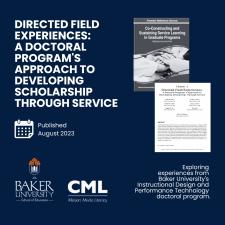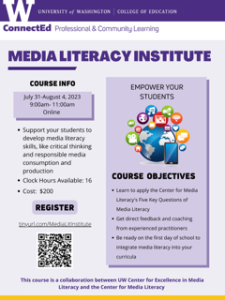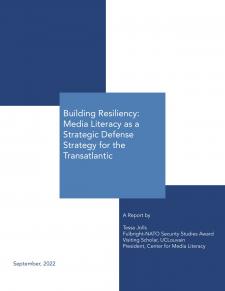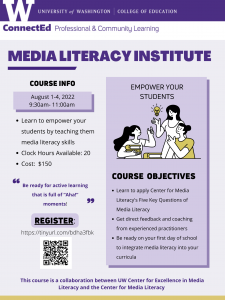Media LIteracy Week 2023!
The Center for Media Literacy (CML) celebrates Global Media and Information (MIL) Week (Oct. 24-31), now a formal event adopted by a UN Resolution in 20210-2021, and annually noted on the United Nations calendar, as well as National Media Literacy Week (Oct. 23-27), in concert with its CML Affiliates and Associates throughout the world. During this week, CML’s Tessa Jolls, President, and Michele Johnsen, Affiliate/Associate will present on Thursday, Oct. 26 at two media literacy events: Tessa Jolls will address “Media Literacy: A Strategy for Risk Management in an Uncertain World, online at Bournemouth University’s Autumn Speaker Series, open to the public on Thursday (16:00-17:00 GMT, free registration), followed by a Q&A session.
Michele Johnsen will address “The State of Media Literacy Across Boundaries” in a panel discussion online sponsored by the Radio and Television Advisory Council-CONCORTV, an autonomous body attached to the Ministry of Transport and Communications of Peru.
CML’s Global OnRamp to Media Literacy, a free online introductory course, is now available in English, Spanish, Malay, Lithuanian and Portuguese, with more languages to come!





